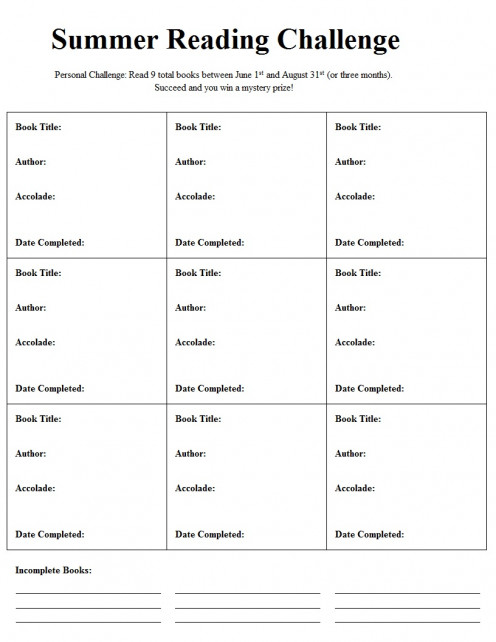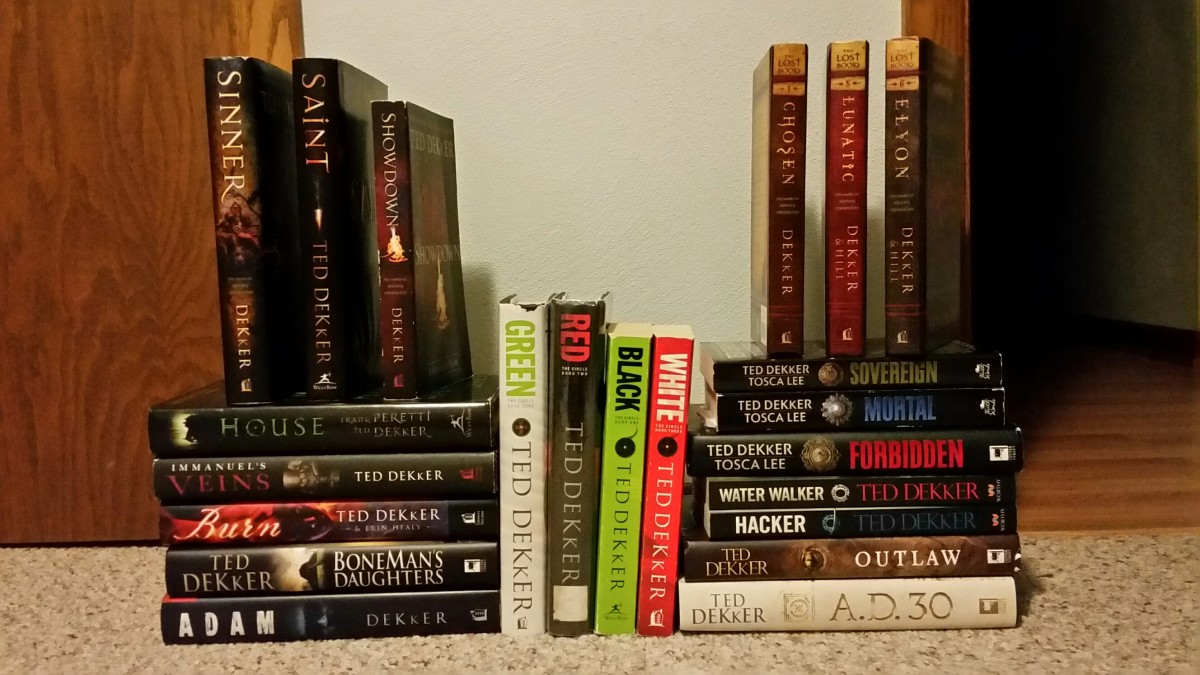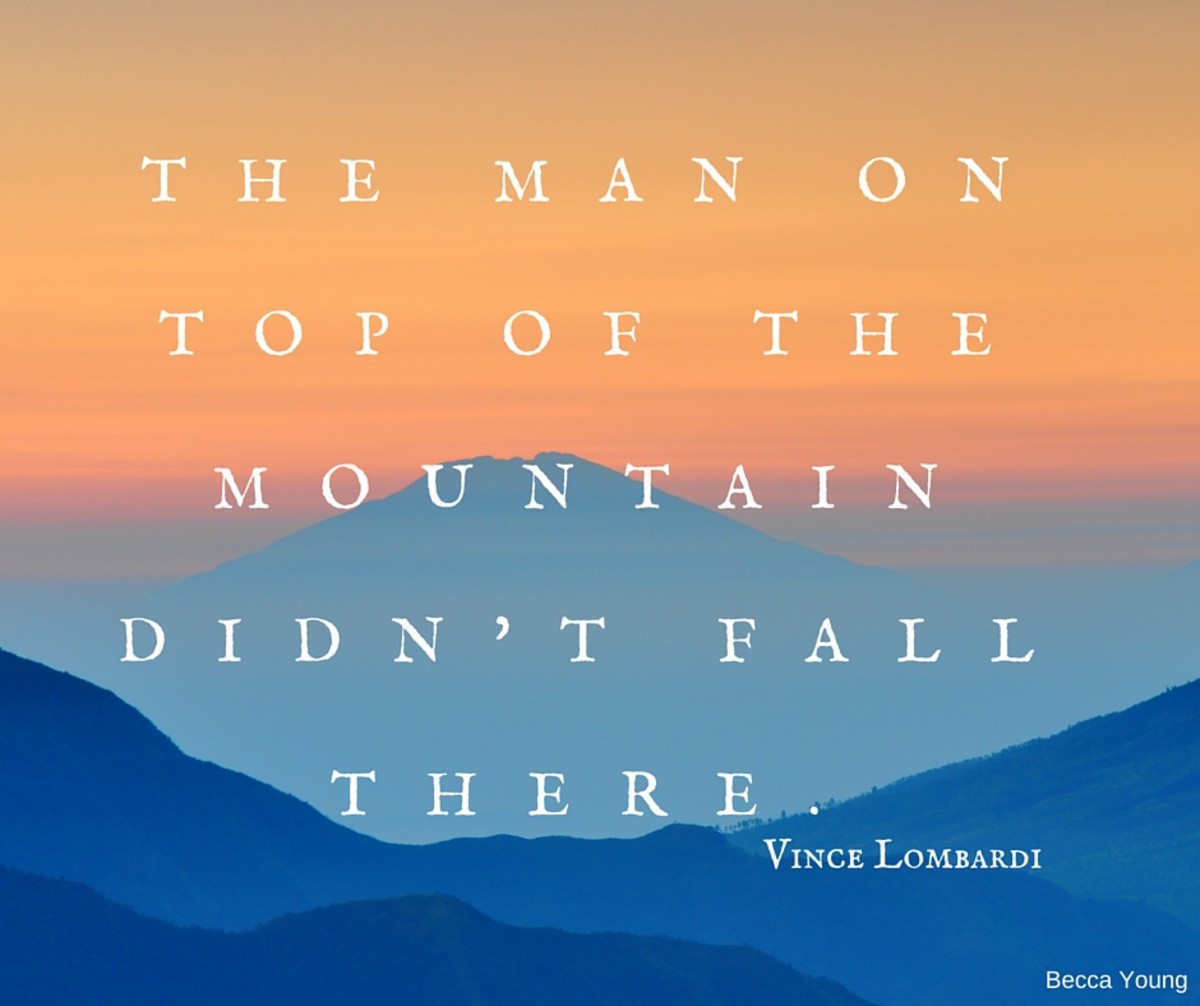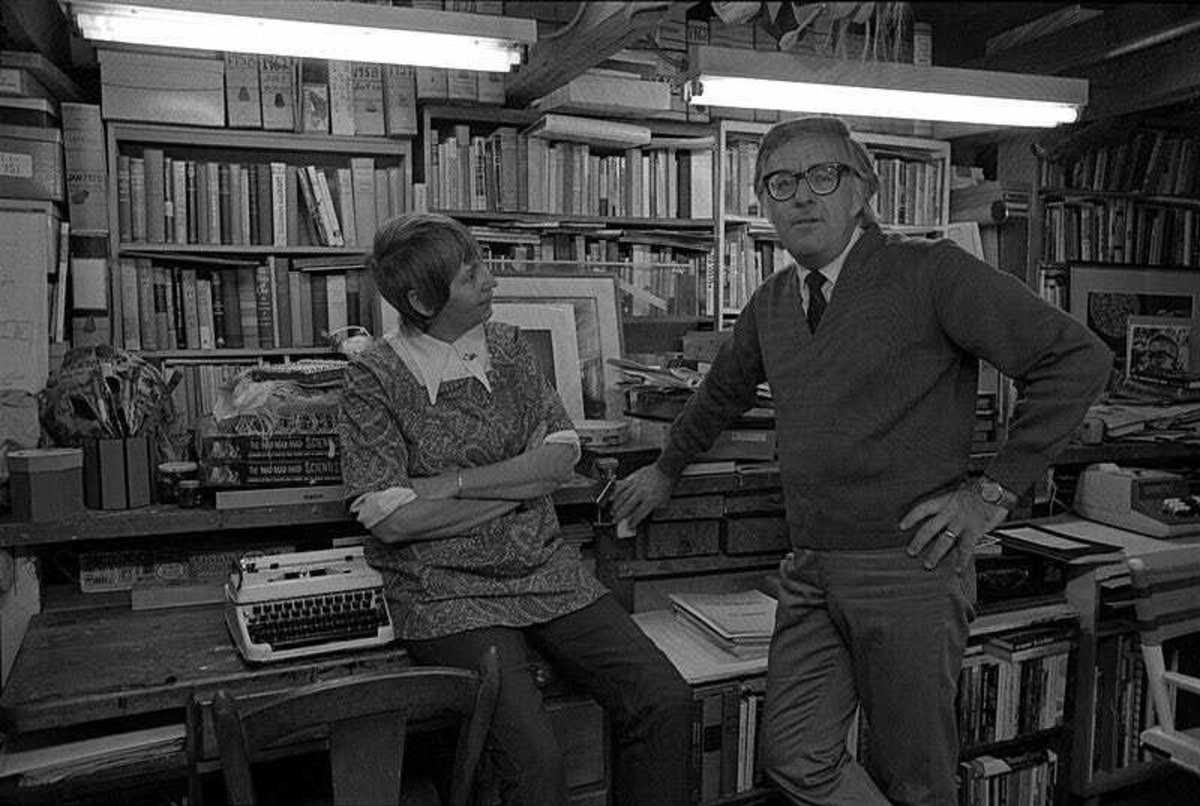The Summer Reading Challenge

You would think that, as a writer, I would be constantly reading books. If it’s my chosen career path, I should familiarize myself with what’s out there so that I know what’s popular, what’s good, and what will leave a lasting impression. Yet, despite my overloaded bookshelves and missing book marks, I reached a sort of impasse with my reading a few years ago. I was lucky to complete five books in a year, while at the same time; casual readers around me (who aren’t writers) were knocking out five books in a month. What was I doing wrong? Sure, I have other hobbies and obligations, but I knew I could do better. If I hope to become a professional writer, I need to read, constantly. And besides, reading exercises the mind and takes us places that no movie or television show can. So, when I discovered a summer reading challenge at my local library I knew that this was the opportunity for me to shift back into gear.
The challenge in question centered on a sort of bingo chart where one’s library books would get marked off until the nine boxes were full. At the end of the challenge the person would be rewarded with various kinds of library swag. Despite my desire to participate in this challenge there were two problems. The first was that the challenge had started on the first of June and it was already more than halfway through that month when I discovered it. The second problem was that I work in that same library. Not only does my job keep me as far away from the books as possible, but I don’t want to come into my place of employment during my time off. So I decided to develop my own challenge, where the only one who could hold me accountable was myself.
The purpose of this article is to encourage further reading, not just to writers, but to everyone in general, and this challenge helps to provide structure, a definitive goal, and a prize at the end.

The Rules
I decided to drop the whole bingo thing from my challenge because I didn’t want it to be a blatant rip-off of the other program. Also, I wanted to be able to read any book I could find on my shelf, so I couldn’t afford to have restrictions like specific genres or authors. But the most important rule was carried over: nine books in three months.
As I went on, there were a few things I realized I needed to more clearly define. The first was page length. How long did the books have to be? In general, most books you pick up are going to be in the 300 page range. However, since this is based on your personal choices, you could also pick a 600 page book and count it as two books, or read a 400 page book and a 200 page book and have both of them count. Similarly, even though I didn’t have a genre requirement there were a few things that I did that I would like to carry over into subsequent years as requirements.
The first is to re-read a book you’ve already read in the past. The purpose of this is to revisit a favorite and remember why you liked it in the first place. It also really helps to get the ball rolling if the first book you pick is one you know you will like. The second requirement is that one of the books be an ebook. This might not apply to you, the only reason I had it for mine was because I’m struggling to get on the ebook train and I felt that this was a great opportunity for me to ease myself into it. You should also make a good faith effort to jump genres. For example, if you only read fantasy novels, try jumping to mystery, or non-fiction or literary fiction. This is just to help diversify your catalog and prevent the challenge from becoming stale. Lastly, the library challenge specifically revolved around the summer, from June 1st until August 31st. While I like and encourage this time frame, realistically any three months you have available will work. Most people will prefer summer just because that is when they have more time.
For this challenge I made up my own sheet to keep track of which books I had read. Each square contains four subject categories; book title, author’s name, accolade and date completed. Most of those should be self explanatory, but you may be wondering what the accolade category is. For me, the accolade field was designed for little sketches. Basically I drew something I remembered from the book, something prominent, so that there would be a visual representation of my accomplishment. Now, you might find that you don’t draw so well, or that you just aren’t interested in the concept. Which is fine, anything can go in this category to commemorate being done with the book. It could be a quote you liked while reading it, or a little blurb about your favorite part. Obviously the space is limited, but referencing something in the book can help you recall it when you see the sheet in later years. Be creative and have fun with it.
The last category on the sheet is the “Incomplete Books” section. Essentially this is where you put all those books that you attempted to read during the challenge but, for whatever reason, failed to. Over the course of my three months, I started several books that just didn’t click. While it was frustrating to have wasted precious time when I could have been reading a different book, it is more frustrating that I didn’t give the failed book more of a chance. That’s why this category was added after I finished my challenge. Basically it’s to give these books a second chance. Maybe you want to try them again when you’re not on a deadline, or maybe you want to revisit them for next year’s challenge. Either way, I feel it’s important to note these books, even if they didn’t contribute to the success of the challenge.
One of my favorites from my 2012 challenge:
One of my favorites from my 2014 challenge:
The Results
So, what is the advantage of reading nine books in three months? If you’re not a fan of books, then this challenge probably isn’t for you, but for those of us who like books, it can become difficult to find time for them in our fast-paced lives. This challenge serves as a lightning rod to re-energize your reading. One of the greatest advantages, that I discovered, was that I read books I had been wanting to read for ages but, for whatever reason, hadn’t picked up yet. I literally went shopping for books on my own shelves. Of the nine I read, only two were purchased during the challenge period. And, of course, you can get all of yours from the library to save on money.
But I also read books that I never thought I would read or even like. Some books, that I was sure would be great, were less than stellar and some I thought would be a bore, were a joy. It really helps to bring back that sense of discovery that is so prevalent in books, especially when we’re young. In my early college days, I always had my nose in a book, and when I lost that sense of commitment it was difficult to accept. Not only did this challenge confirm that I can still read like a maniac, but it also provided a sense of accomplishment that isn’t easily matched with any other pass time. That is why keeping track of the completed books is so important, because then you can slap that baby up on the fridge and enjoy seeing a manifestation of your self-discipline every time you walk by it.
As for the prize you award yourself, that is entirely up to you. It could be anything from a fancy dinner, to a DVD box set. But it should be something you’ve wanted for a long time, but haven’t gotten for yourself. For me, I purchased the model you see in the cover photo for this article. (Think of it as a digital action figure you can make artwork with.)
For some people, this challenge might seem too difficult. To others, it might seem too easy. But ultimately, I think it’s worth it. Whether it’s to rekindle your love with books or just to prove you can meet a deadline. Grab those books and get reading!









